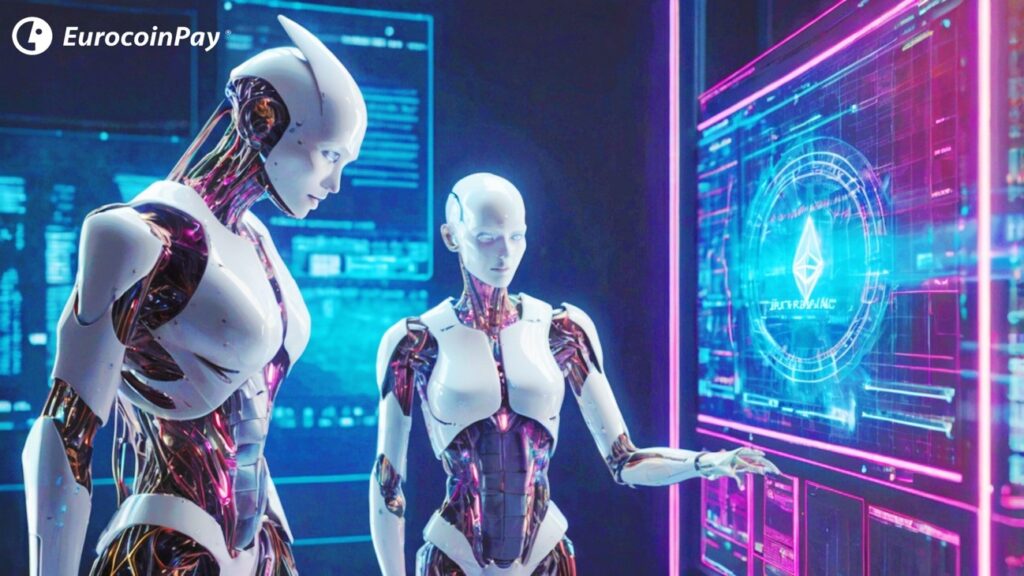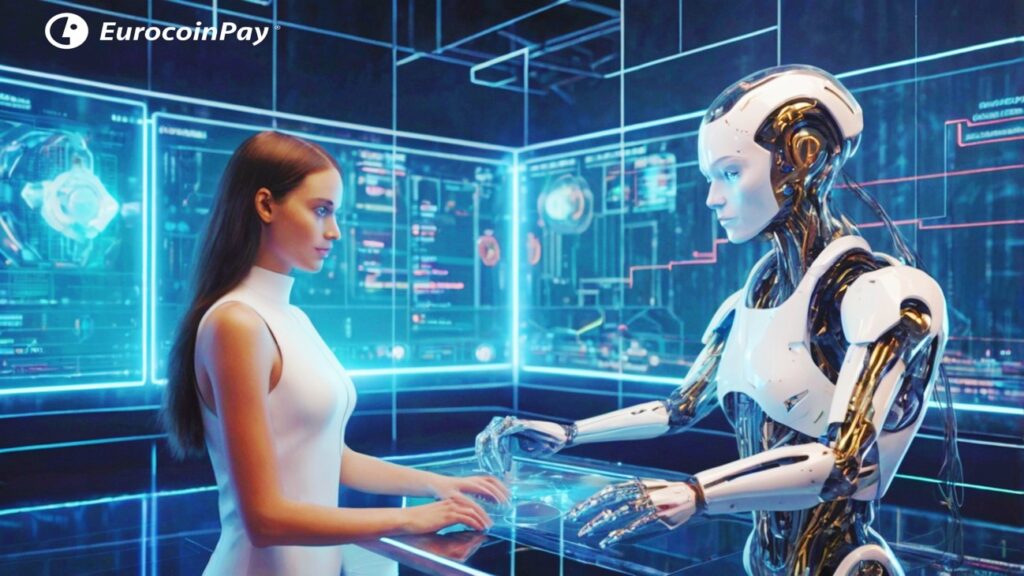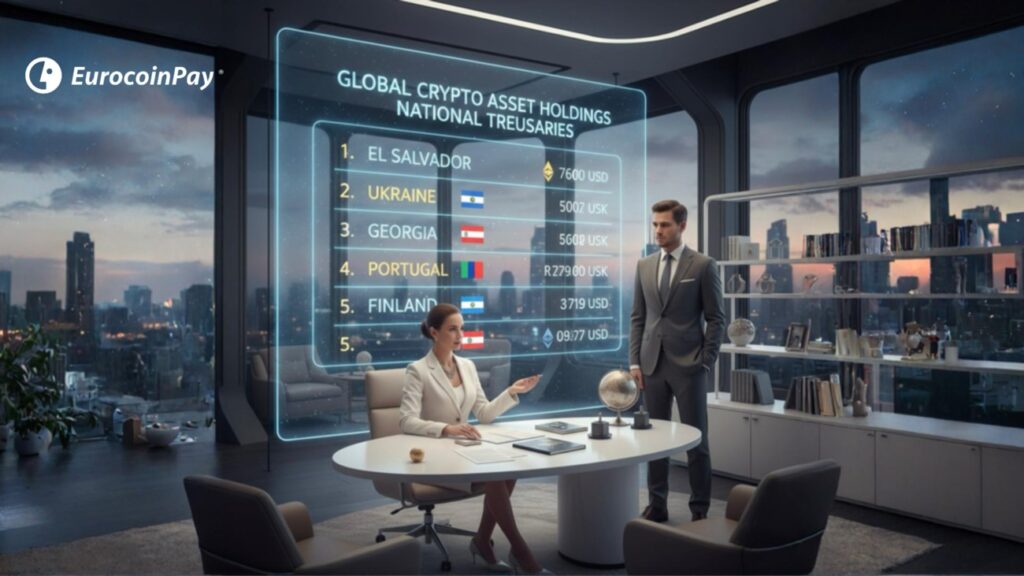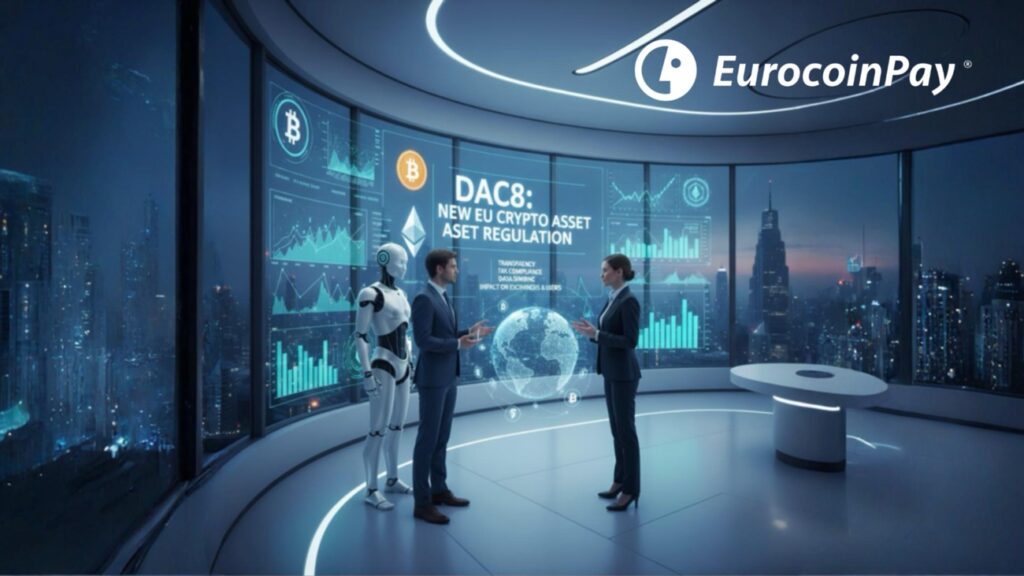THE ETHEREUM VIRTUAL MACHINE (EVM) IS A CODE EXECUTION ENVIRONMENT THAT ENABLES THE EXECUTION OF SMART CONTRACTS ON THE ETHEREUM NETWORK
What is the Ethereum Virtual Machine (EVM)?
The Ethereum Virtual Machine (EVM) is a code execution environment that enables the execution of smart contracts on the Ethereum network. Imagine a virtual computer inside the Ethereum blockchain, where decentralised applications (dApps) can run securely and transparently.
Why is EVM important?
- The foundation of smart contracts: EVM is the engine that powers smart contracts, enabling the creation of decentralised applications with a wide range of functionalities.
- Decentralisation: By running on the blockchain, smart contracts are resistant to censorship and cannot be controlled by a single entity.
- Security: EVM is designed to be secure, verifiable and resistant to attacks.
- Flexibility: It enables the creation of a wide variety of applications, from decentralised finance (DeFi) to gaming and non-fungible tokens (NFTs).
How does EVM work?
Smart contracts are written in programming languages such as Solidity and then compiled into low-level code called bytecode
The execution of this bytecode is sent to the Ethereum network and executed in each node’s EVM.
The state of the EVM maintains a global state that represents the balance of accounts and the value of smart contract variables.
Interactions with smart contracts are done through transactions, which modify the state of the EVM.
Advantages of EVM
It has 3 fundamental advantages:
- Programmability: It allows the creation of complex and customised applications.
- Interoperability: Smart contracts can interact with each other, creating decentralised ecosystems.
- Security: The nature of the blockchain guarantees the security and transparency of transactions.
Challenges of EVM
The scalability of EVM can be limited in terms of scalability, which can result in high transaction fees during periods of high demand.
The complexity of smart contract programming can be complex and requires specialised technical knowledge.
EVM vs. Other Virtual Machines
Traditional virtual machines, such as those running Java or .NET, are typically centralised and dependent on a specific server or operating system. EVM, on the other hand, is:
- Decentralised: It does not run on a single computer, but on a network of nodes that validate and execute the smart contract code. This makes it more resistant to failures and attacks.
- Immutable: Once a piece of data is stored on the Ethereum blockchain, it is almost impossible to modify it. This ensures transparency and integrity of records.
- Secure: EVM uses consensus mechanisms (such as Proof of Work or Proof of Stake) to ensure that only valid transactions are added to the blockchain.
EVM vs. other Blockchains
Although many blockchains use virtual machines to execute smart contracts, Ethereum’s EVM has distinctive features:
- Turing Complete: The EVM is a Turing complete virtual machine, meaning that it can perform any computation that a computer can theoretically perform. This gives it great flexibility for creating decentralised applications.
- Solidity: Ethereum uses Solidity as its main programming language for creating smart contracts, and this language is specifically designed for the EVM.
- Gas: Ethereum has the largest community and development ecosystem of all blockchains, which has led to a wide variety of applications and tools.
- Community and Ecosystem: Ethereum has the largest community and development ecosystem of all blockchains, which has led to a wide variety of applications and tools.
| Feature | EVM | Other Virtual Machines | Other Blockchains |
|---|---|---|---|
| Decentralisation | High | Low | Varies |
| Immutability | High | Low | Varies |
| Security | High | Varies | Varies |
| Turing Complete | Yes | Varies | Varies |
| Programming Language | Solidity | Varies | Varies |
| Consensus Mechanism (Proof of Work/Proof of Stake) | No | Applies | Varies |
| Community and Ecosystem | Large and mature | Varies | Varies |
In summary, EVM stands out for its decentralisation, security, Turing completeness and vibrant ecosystem. These characteristics have made it the leading platform for the development of smart contracts and decentralised applications.
Disclaimer: The information set forth herein should not be taken as financial advice or investment recommendation. All investments and trading involve risk and it is the responsibility of each individual to do his or her due diligence before making a decision.





